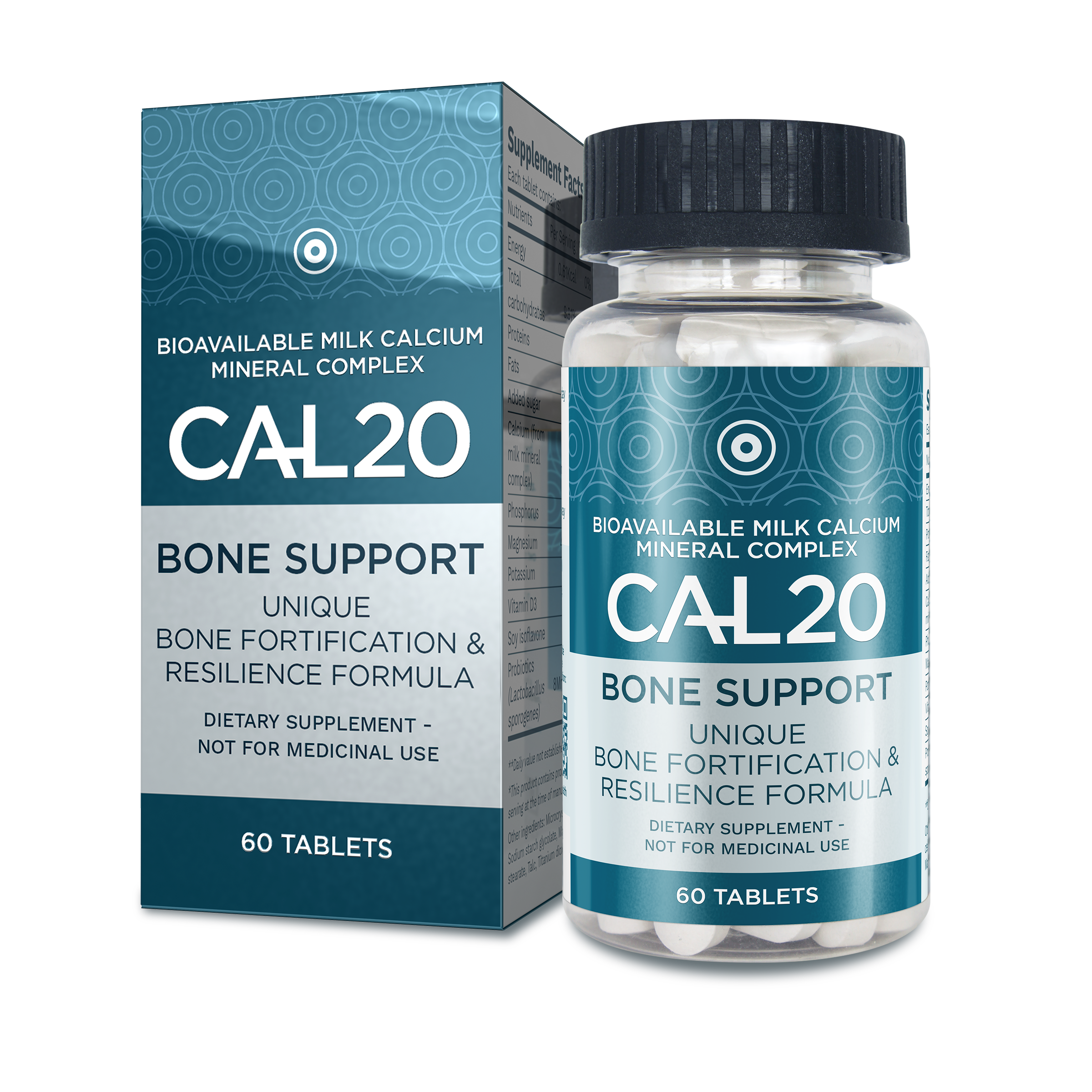Osteoporosis
Osteoporosis is a bone disease characterised by low bone mass, decreased bone density, and increased risk of fractures. It primarily affects older adults, especially postmenopausal women. The condition weakens the bones, making them more susceptible to fractures, even with minimal trauma. Osteoporotic fractures commonly affect the hip, spine, and wrist, leading to pain, disability, and reduced quality of life. Unless you have a bone density scan to assess the health of your bones, this disease will develop silents and go undetected until you have a fall (sometimes even just a stumble) and break a bone. Factors contributing to osteoporosis include hormonal changes, age, gender (women are more prone), genetics, and lifestyle factors. To address osteoporosis effectively, a comprehensive approach that includes lifestyle modifications, proper nutrition, and targeted supplementation is essential. One such supplement that has shown to reverse the effects of osteoporosis in 85% of participants in clinical trials is Cal20.
Understanding Cal20
Cal20 is a supplement specifically formulated to support bone health and prevent osteoporosis. It contains a combination of essential nutrients, including milk calcium, vitamin D, magnesium, phosphorus and potassium; minerals that are vital for bone strength. The addition of soy isoflavones have added to its potency in building healthy bones. Cal20 aims to provide the necessary building blocks for bone formation and maintenance. The formulation is designed to optimise calcium absorption to nearly 100%, regulate bone metabolism, and support overall bone health. The body can only absorb about 2% of common calcium supplements such as calcium carbonate and calcium citrate, which is usually extracted from limestone (chalk).
The Role of Diet in Osteoporosis Prevention and Management
A well-balanced diet rich in nutrients plays a crucial role in maintaining bone health. Adequate calcium intake is essential for optimal bone density. Good dietary sources of calcium include dairy products, leafy greens, fortified foods, and fish with edible bones like sardines. Consuming a varied diet that includes fruits, vegetables, lean proteins, and whole grains will support overall health and aid in maintaining bone density. Vitamin D, obtained through sun exposure and dietary sources like fatty fish and fortified foods, facilitates calcium absorption.
Other nutrients, such as magnesium, and phosphorus, also contribute to bone health and should be included in the diet. The beauty of Cal20 is that it contains all these minerals as well as probiotics. Cal20 also contains vitamin D3 and soy isoflavones, which further aids in calcium absorption. This leads to its near 100% bioavailability – meaning , the body absorbs all of it.Exercise for Strong Bones
- Regular exercise is crucial for building and maintaining bone strength.
- Weight-bearing exercises like walking, jogging and dancing will help stimulate bone remodelling and increase bone density.
- Weight lifting is a key element to building healthy bone and should be done at least 2-3 times a week to maintain bone strength.
- Resistance exercises using resistance bands, will also improve bone health.
- Balance and flexibility exercises, like yoga, pilates and tai chi, can help reduce the risk of falls and fractures.
- Engaging in a well-rounded exercise routine that includes a combination of weight-bearing, resistance, and balance exercises is beneficial for overall bone health.
Populations affected by Osteoporosis
Osteoporosis can affect both men and women of any age, but it is more common in older adults, particularly postmenopausal women. Currently this silent killer disease affects one third of the world’s population. Here are some key points regarding the population affected by osteoporosis:
1. Postmenopausal Women: Women experience a significant decline in estrogen levels after menopause, which accelerates bone loss and increases the risk of osteoporosis. Estrogen plays a protective role in maintaining bone density, and its reduction makes women more susceptible to developing the condition.
2. Older Adults: Osteoporosis becomes more prevalent with age. As individuals grow older, bone density naturally decreases, making bones weaker and more prone to fractures. Cal20 can alter the natural progression thinning of the bones as a result of aging and help the body continually build strong bones.
3. Men: While osteoporosis is more common in women, men can also develop the condition. Men typically have higher peak bone mass than women, but they still experience age-related bone loss. Certain factors, such as low testosterone levels, long-term steroid use, certain medication and certain medical conditions, can increase the risk of osteoporosis in men.
4. Family History: Having a family history of osteoporosis can increase an individual’s risk. Genetic factors play a role in determining bone density and susceptibility to the disease.
5. Hormonal Imbalances: Conditions that cause hormonal imbalances, such as hyperthyroidism or hypogonadism, can contribute to the development of osteoporosis.
6. Certain Medications and Medical Conditions: Prolonged use of corticosteroids, such as prednisone, can weaken bones and increase the risk of osteoporosis. Additionally, certain medical conditions like rheumatoid arthritis, celiac disease, and inflammatory bowel disease as well as cancer treatments can affect nutrient absorption or bone health, which can lead to osteoporosis.
7. Lifestyle Factors: Sedentary lifestyle, excessive alcohol consumption, smoking, and a diet low in calcium and vitamin D can increase the risk of osteoporosis.
Conclusion
It is important to note that while certain groups are more susceptible to osteoporosis, the condition can affect anyone. Assessing individual risk factors, having a bone density scan, and adopting a proactive approach to bone health through lifestyle modifications and appropriate medical interventions can help prevent and manage osteoporosis. Alongside a well-balanced diet and regular exercise, targeted supplementation with high quality products like Cal20 can provide essential nutrients to support bone health.
It is important to consult with your healthcare professional and consider your individual needs and medical history when incorporating any new dietary regime.




